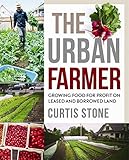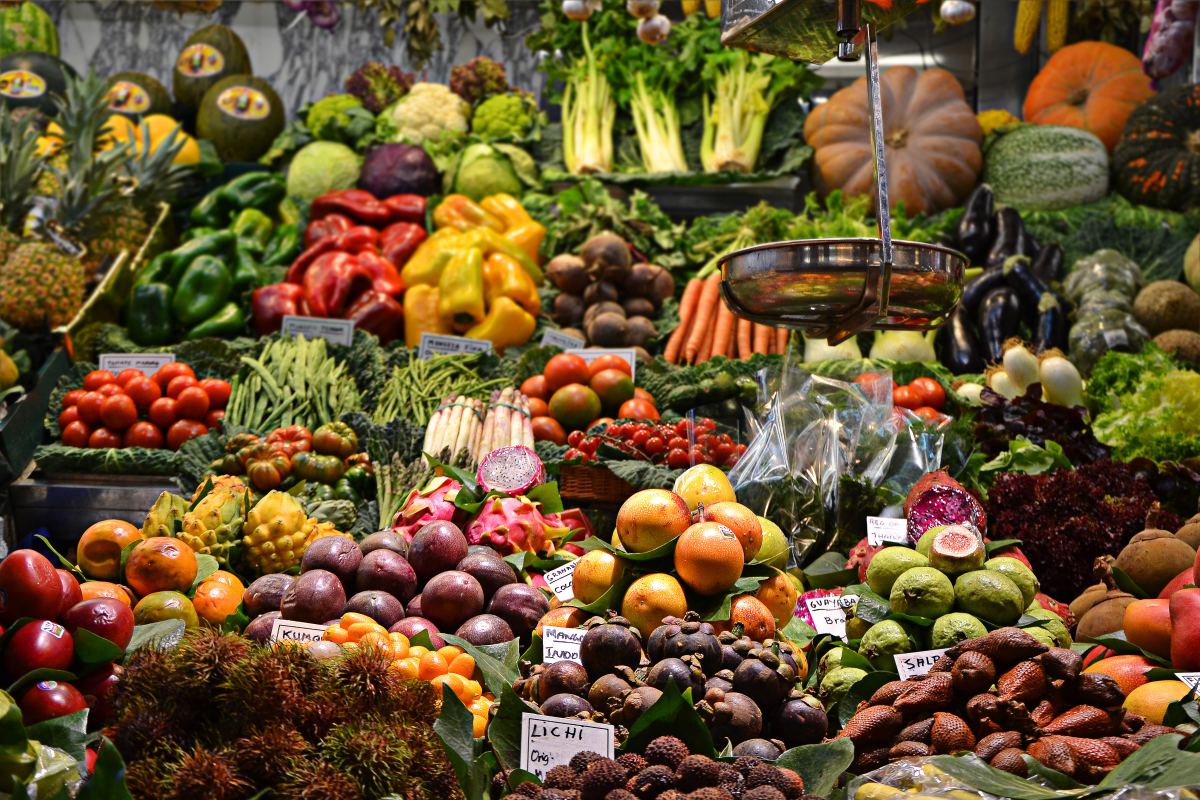Urban Farming for Self-Sufficiency
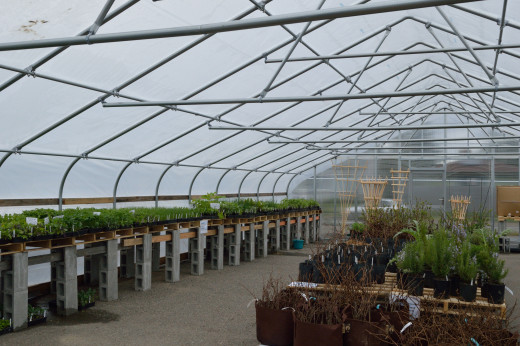
The Birth of This Article
This was an easy article to write. My wife and I were out running errands this past Saturday and we happened to come across a new business having a grand opening. The Eastside Urban Farm and Garden Center was open for business, and our car practically drove itself into their parking lot demanding that we see what this new store had to offer.
It took very little convincing. Once I saw the sign that said free food I was all too happy to see what this new store had to offer.
As soon as we entered the store, and I’m talking maybe twenty seconds, a gentleman approached us and asked if we would like a tour of the new store. We introduced ourselves and he, in turn, said he was Bill Jackson, one of the co-owners of this new enterprise. He then spent twenty minutes giving us that tour and answering our questions.
One of the first questions I asked Mr. Jackson was why they were opening this type of store in the heart of the city. Usually feed and farming stores are located on the outskirts of the city, close to where the farms are located. In answer to my question he asked me why we were there. I didn’t have the heart to tell him I was after free food, so I answered with the second thing that came to my mind….that we were interested in urban farming.
“Exactly,” he said. “And more and more people are as well.”
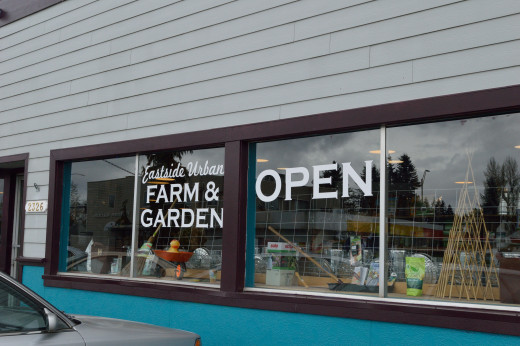
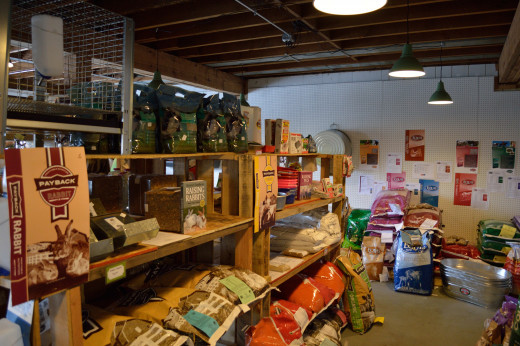
The Numbers Are Growing
Currently, urban agriculture (farming) provides food for 700 million city dwellers, and the numbers are, indeed, increasing daily. Why would they not?
As the economy continues to stagnate, more people are looking for ways to supply their own food needs. As concerns about food quality increase, more and more people are looking at urban farming as a way to guarantee the quality of their food. As concerns about the environment increase, people are turning to urban farming as a way to help, in some small way, to restore the environment.
The beauty of urban farming is that it takes very little room to implement. A small backyard can be transformed into a food-producing area. Even if one does not have a backyard, crops can be grown in containers on a deck or porch.
Our urban farm is an eighth of an acre in the heart of Olympia, Washington. We are surrounded by neighbors, many of whom also practice urban farming. Our “farm” consists of a large vegetable garden, an herb garden, six chickens, berry bushes and fruit trees…..and it is growing. Soon we will raise quail for eggs and meat, and our plans call for two goats for milk and meat, as well as beehives for organic honey. Each year we will add more berries and fruit trees.
In other words, instead of watering a lawn that produces nothing for our family, we are using our space to provide food and meat for us, and the excess is shared with our neighbors in an informal bartering system.
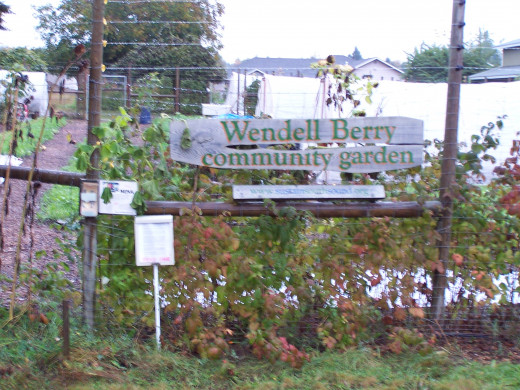
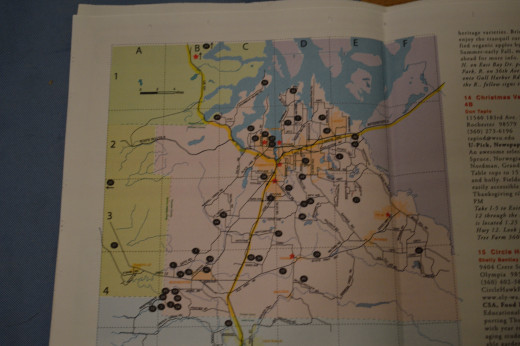
A Supportive Community Is Important
Urban farming is not a new concept. It dates back to Ancient Egypt, and it can be found around the world in major urban centers today. One of the advantages we have here in Olympia is a community that supports this type of activity.
There are few restrictions hampering the urban farmer in our city. Gardens can be grown in the front yard and in fact are encouraged by civic leaders. Community gardens can be found throughout the city as neighbors share space with other neighbors on land donated by the city and city business leaders.
The map on the right shows the number of organic farms in our county alone. Those organic farms bring their produce to our local Farmer’s Market, where products are sold and information is exchanged. As more organic produce is grown, and as more organic meat is raised, the prices will fall as the laws of supply and demand come into play.
And now we have an urban supply store one mile from our home! How very exciting!
One of the other co-owners I spoke to at the Eastside Urban Farm and Garden Center, Brighida deVargas, said it all perfectly:
”My goal is to help as many people as possible to create beautiful and productive gardens, urban farms, and homesteads. I believe that growing and eating food grown close to home is one of the most important things anyone can do on so many levels! It makes our cities sustainable and livable, restores health to our families, and creates more vibrant, connected communities, while boosting the local economy. It just makes sense all around. And it is fun for the whole family! ”
Great video showing the possibilities
More on the Way
As I scanned the brochures at this new store, I noticed that classes would be held throughout the year, classes on cheese-making, canning, beekeeping, organic gardening techniques and much more. The owners have a vision of their store being a hub for urban farmers in our community. They want it to be not only a thriving business but also a community center where people exchange ideas and learn from each other.
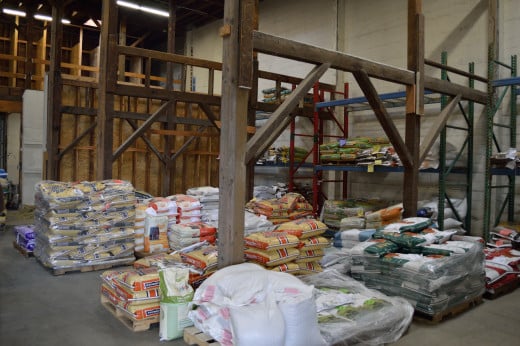
And If It Can Happen in Olympia
Well then, quite obviously, it can happen in your community as well. All it takes is finding some like-minded people who are willing to begin the movement where you live. Lobby the local politicians so that your community becomes “urban farming friendly.” Spread the word and get people talking about the advantages of urban farming.
This is a concept where everybody wins, with the obvious exceptions of Monsanto and other life-leeching corporations.
Here is a quick list of the benefits of urban farming:
Socially it
- Helps bring families and communities together by working toward a common goal that will be beneficial for all
- Gives direct links to food production
- Creates better living environment by greening up the city and making it more productive
- Makes people stronger by putting their food security into their own hands, making them more independent and empowered
- Teaches people life skills such as how to be more self sufficient
- Creates jobs, income, and food
- Helps combat hunger
- Educate people, who have been increasingly removed from food production, to participate in, and respect, its generation (Hamm 1999)
Environmentally it
- Greens up the city
- Can help to clean air and rain water
- Helps to stop erosion and topsoil removal
- increases the amount of food grown and bought locally, decreasing carbon footprint
- Facilitates reuse of wastes for food production
- Has direct impacts on urban ecology
Economically it
- Creates jobs and income from otherwise completely unproductive space
- Can be beneficial to people of any income
- Creates a better local economy that does not rely on food from far away
- Makes use of valuable resources, such as compost, that would otherwise go to waste in a city
Can we really afford not to get involved in urban farming?
Join me on my blog
- The Art of Living Simple | Beginning a New Journey of Simplicity
A site devoted to the simple life and how to live it
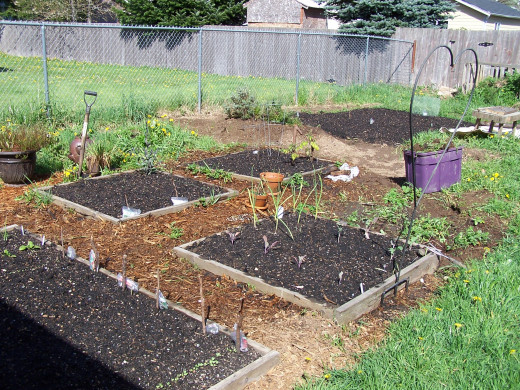
Final Thoughts
It’s amazing what you will find while running errands. I want to thank the co-owners at the Eastside Urban Farm and Garden Center. Brighida De Vargas, Joe Vargas, Michelle Jackson, and Billy Jackson, you were all accommodating and helpful. I especially appreciate the friendly service and your passion for urban farming.
For the rest of you out there, give it some thought. As I have said in previous articles, it is time for citizens to become proactive rather than reactionary. Become a part of your community, and begin taking steps to help your family and your community. We are all counting on you to do so.
2014 William D. Holland (aka billybuc)

